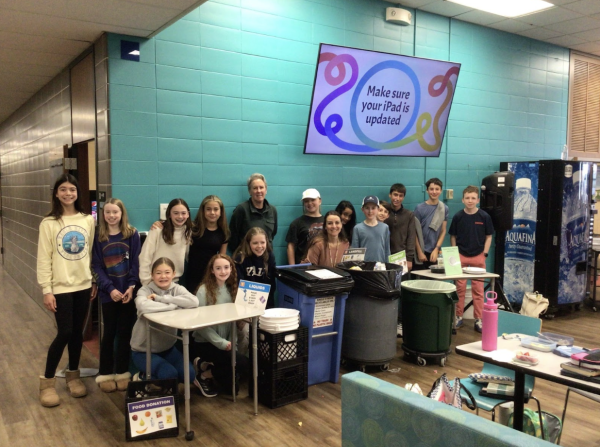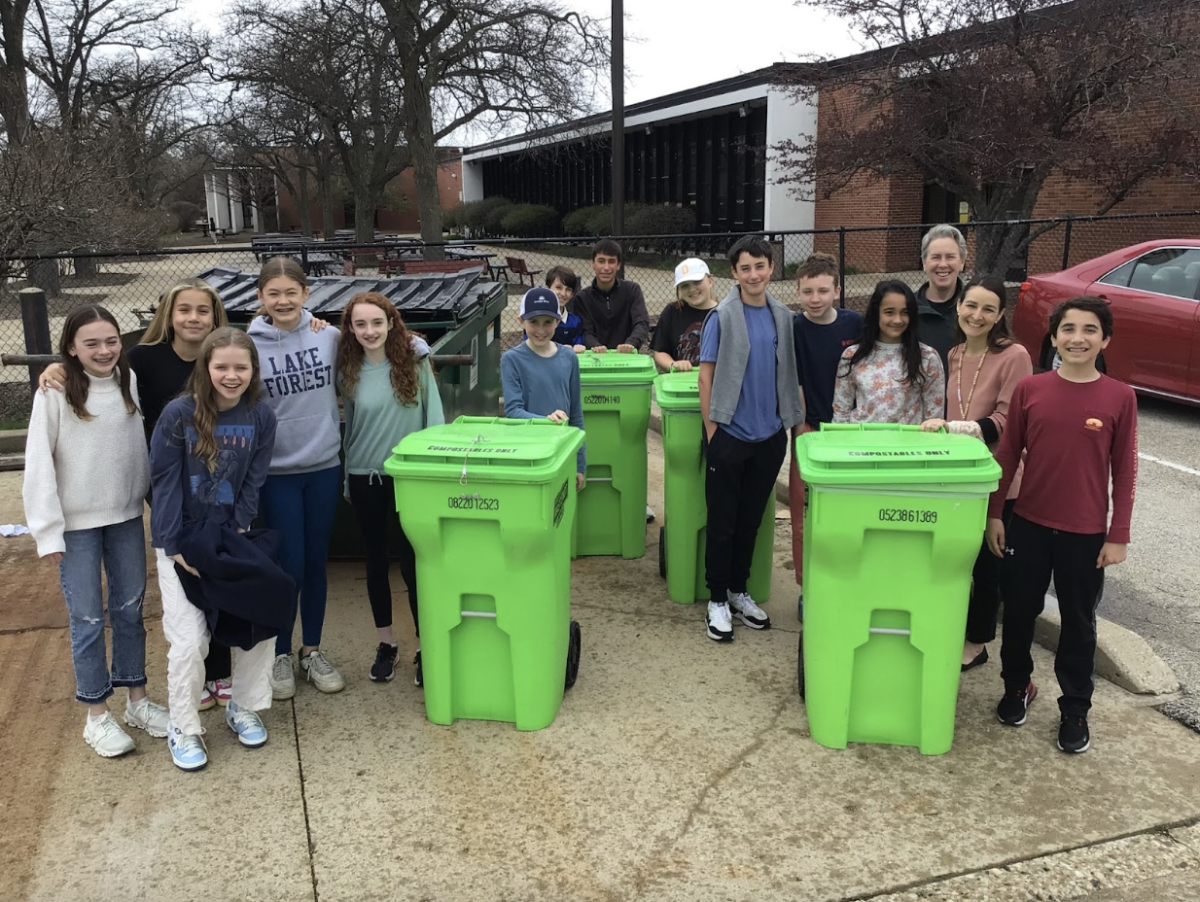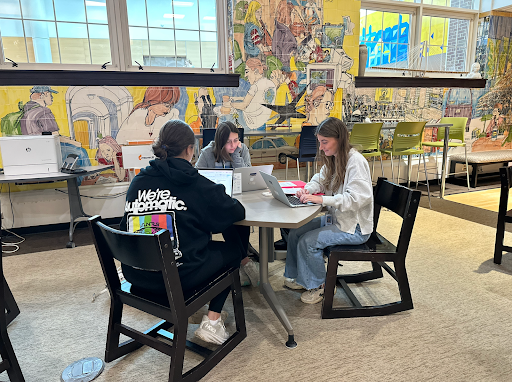Composting has been proven as a simple yet effective way to reduce cafeteria waste, and implementing a compost bin in our cafeterias would not only easily pave the way to lower greenhouse gas emissions but also provide educational opportunities to all students on food waste.
If freshman William Elliott and Deer Path Middle School’s Green Team designed, created, and implemented a compost bin that has diverted nearly 7,000 pounds of food and 300 gallons worth of gas DPM in the 2023 – 2024 school year, why can’t LFHS?
It started with a research assignment on reducing waste, but most students didn’t take it as far as William did.
“William’s research assignment on food waste was a driving factor for the compost bin project,” DPM social studies teacher Nicole Burmingham said “After reading his assignment, I told William we could do something about our waste, like the schools that compost.”
Approximately one-third of all food produced globally is wasted, which not only wastes valuable resources of water and energy, but also contributes to greenhouse gas emissions and climate change.
The pilot started with a waste audit where students and DPM’s student run group, “Green Team,” examined how much food waste was from the cafeteria.
“We weighed our food waste, recycling, and landfill and it was really fun,” Burmingham said “From this, we found out an insane percentage of our actual waste in the cafeteria was food waste. It wasn’t landfill waste, but it was all going to the landfill. And so we thought, what can we do to divert that?”
After many meetings with District 67 and more waste audits with Seven Generations Ahead (SGA), an organization that works with communities to build sustainability to solve global environment issues, in partnership with the Solid Waste Agency of Lake County, Lake County’s Government Sustainability initiative, DPM was able to kick off the compost bin within a year. District 67 covered the cost of maintenance and manufacturing.
Using SGA for more research gave DPM the opportunity to be a part of one of the 20 schools implemented in the Zero Waste Schools Lake County Program, which included middle and high schools in Highland Park and Lincolnshire.
However, the introduction of compost bins brings certain challenges, particularly in terms of maintenance. While it is a possibility that students could inadvertently dispose of items inappropriately, DPM’s team of student “Zero Waste Ambassadors” help maintain the composting system by educating their peers on proper disposal practices and monitoring the bins to ensure they are used effectively, as well as using tongs to pick plastic out of the bins if necessary.

Courtesy of Nicole Burmingham
“It is unfortunate if plastic ends up in the compost, then it potentially can’t serve as an actual fertilizer because it’s contamination. So we’re really, really careful with our compost,” Burmingham said. “For the most part, as long as there is a human presence, including our great student volunteers, most students comply.”
DPM’s ability to maintain a compost bin has served as a precedent for many LFHS students and teachers to embrace sustainable practices and engage actively in waste reduction efforts.
“If we could implement some sort of food-waste composting that would be a really sustainable practice for what we send to the landfill,” AP Environmental Science teacher, Candice Davenport said. “Although there are definite differences between LFHS’s location and DPM’s regarding spacing and the housing surrounding our school, starting to look at how we could reduce our food waste is a good idea.”
Senior Gwen Daliere also believes LFHS needs to do something about our waste going into landfills.
“I’ve used a compost bin at my house since I was a child. It is so effortless, all you have to know is that all food goes in there,” Daliere said “It is so simple and seems like it could be implemented at LFHS. I’m disappointed that our school doesn’t recycle or compost food, it could easily lower LFHS’s carbon footprint.”
While installing compost bins, like many nearby districts and schools in Lake County, is an excellent step toward sustainability for LFHS, there are also simpler ways for students to help reduce waste in the cafeteria.
“If students pack their lunch, trying not to overpack it can prevent extra food waste. If students are buying food in the cafeteria, taking only what you need to prevent waste in the first place is the most sustainable option.” Davenport said.
The future of Elliott’s composting initiative doesn’t stop at DPM.
“After helping plan and research composting, I am glad we got a compost bin at DPM and hope that in my next four years at LFHS we can create a similar system.” Elliott said.
While challenges such as maintenance and contamination exist, the involvement of student ambassadors and volunteers can help mitigate these issues. By adopting a similar approach to DPM, LFHS can inspire students, reduce waste, and contribute to a healthier environment for everyone.









Jason Kowalski • Sep 24, 2024 at 4:59 pm
Our students can’t even keep recycling and landfill waste separate. Do you expect them to separate compost waste as well?